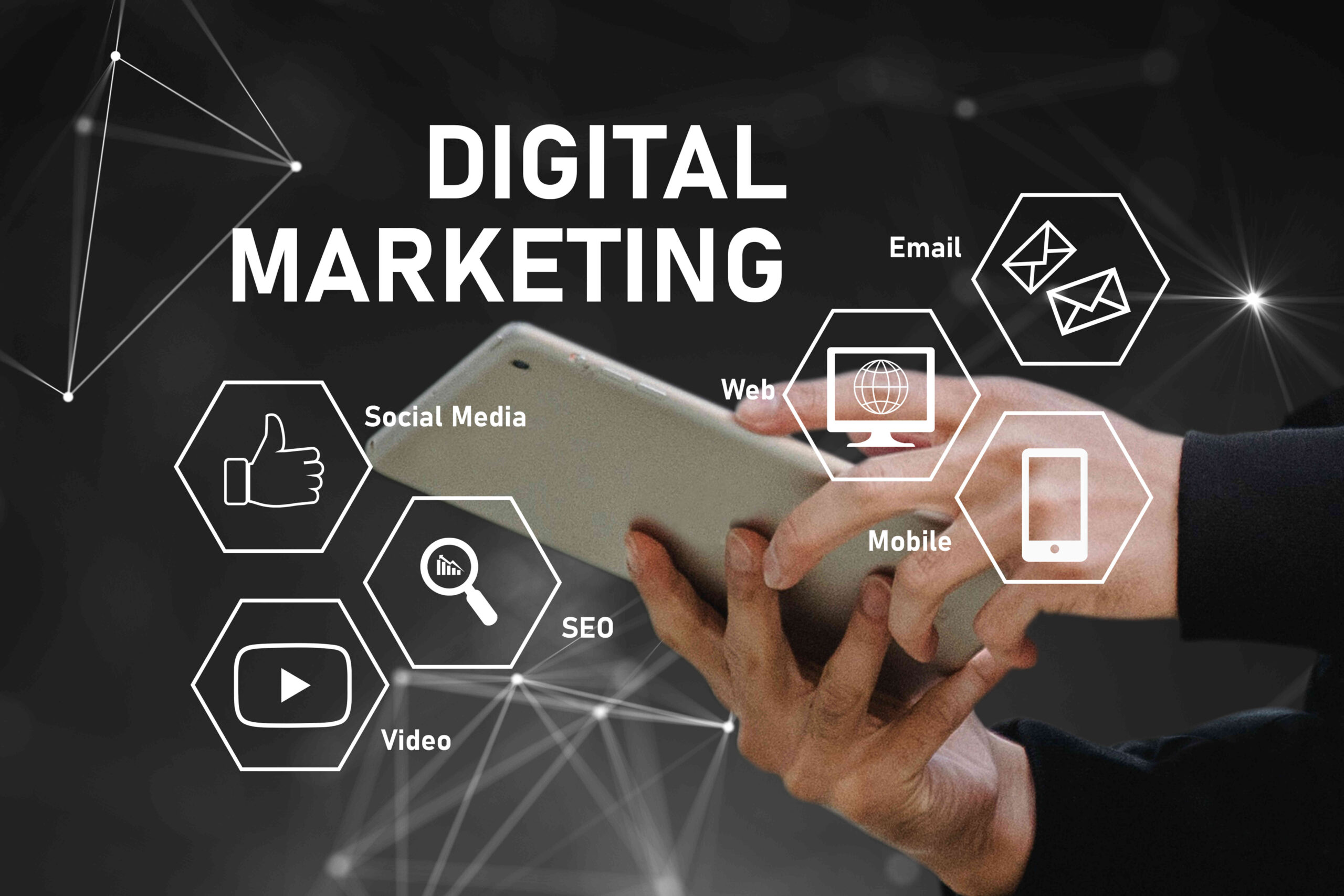As we step into 2024, the digital marketing landscape continues to evolve rapidly. With technological advancements, shifting consumer behaviors, and an increasing focus on data-driven strategies, businesses must adapt to stay competitive. Here are some key trends and predictions shaping the future of digital marketing in 2024.

Table of Contents
Toggle1. AI-Driven Personalization
Artificial Intelligence (AI) is transforming how brands interact with consumers. In 2024, we expect to see even more sophisticated AI algorithms that analyze consumer data to deliver hyper-personalized experiences. From product recommendations to tailored content, brands will leverage AI to create meaningful connections with their audience, enhancing customer satisfaction and loyalty.
2. Voice Search Optimization
With the rise of smart speakers and voice-activated devices, optimizing for voice search has become crucial. By 2024, more consumers will rely on voice search for information, making it essential for businesses to adapt their SEO strategies. Marketers will need to focus on natural language processing and long-tail keywords to align with how people speak rather than type.
3. Video Content Dominance
Video content is not new, but its importance will only increase in 2024. Short-form videos, live streaming, and interactive video content will dominate social media platforms. Brands will harness the power of storytelling through video to engage their audience, showcase products, and drive conversions. Expect to see more user-generated content and collaborations with influencers to amplify reach.
4. Sustainability and Ethical Marketing
Consumers are becoming increasingly conscious of their environmental and social impact. In 2024, brands that prioritize sustainability and ethical practices will gain a competitive edge. Digital marketing strategies will need to reflect these values, showcasing transparent supply chains, eco-friendly products, and community involvement. Brands that effectively communicate their commitment to sustainability will resonate with conscious consumers.
5. Enhanced Data Privacy
As data privacy concerns continue to rise, digital marketers must navigate a more complex landscape. With regulations like GDPR and CCPA in place, businesses will need to adopt transparent data collection practices. In 2024, marketers will focus on building trust with consumers by prioritizing data security and ethical data use while still delivering personalized experiences.
6. The Metaverse and Augmented Reality
The metaverse is no longer a concept of the future; it’s becoming a reality. In 2024, brands will explore opportunities within virtual environments, utilizing augmented reality (AR) and virtual reality (VR) to create immersive marketing experiences. Whether through virtual showrooms, AR filters, or interactive gaming experiences, marketers will leverage these technologies to engage consumers in innovative ways.
7. Influencer Marketing Evolution
Influencer marketing will continue to evolve, with a shift towards micro and nano influencers. In 2024, brands will prioritize authenticity and engagement over sheer follower numbers. Collaborating with smaller influencers who have a dedicated and engaged audience can lead to more meaningful connections and higher conversion rates. Additionally, brands will look for influencers who align with their values and target audience.
8. Omni-Channel Marketing Strategies
In 2024, a seamless customer experience across various touchpoints will be paramount. Brands will adopt omni-channel marketing strategies, ensuring consistency in messaging and user experience, whether through websites, social media, email, or physical stores. This integrated approach will help create a cohesive brand narrative, enhancing customer loyalty and retention.
Conclusion
The future of digital marketing in 2024 is dynamic and full of potential. By embracing AI-driven personalization, optimizing for voice search, and prioritizing sustainability, brands can position themselves for success in an increasingly competitive landscape. As technology continues to advance, staying ahead of these trends will be crucial for marketers aiming to connect with consumers in meaningful ways. Adapting to these changes will not only enhance brand visibility but also foster lasting relationships with customers in the digital age.


No responses yet